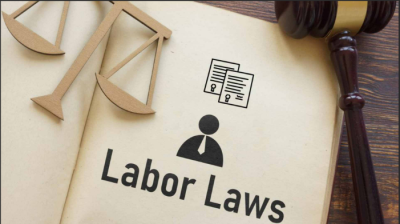Course description
Labor Law in the Philippines is primarily governed by the Labor Code of the Philippines, which sets the rules and regulations surrounding the relationship between employers, employees, and labor organizations. The Labor Code aims to promote the welfare and rights of workers, ensure fair labor practices, and foster harmonious employer-employee relationships. It includes provisions on employment standards, wages, benefits, working conditions, employee protection, dispute resolution, and more. The law seeks to balance the needs of businesses and the rights of workers, ensuring social justice and economic fairness in the workplace.
Key Aspects of Labor Law in the Philippines:
1. Employment Contracts
The Labor Code requires employers to provide employees with clear terms of employment. Employment contracts should specify job duties, wages, work hours, benefits, and other important terms of the employment relationship. Employment can either be under regular contracts, fixed-term contracts, or probationary contracts, with protections against arbitrary termination.
2. Wages and Compensation
The Labor Code sets the minimum wage that employers are required to pay workers. The government regularly reviews and adjusts the minimum wage based on economic conditions. In addition to the basic salary, workers are entitled to various compensation benefits, including:
-
Overtime pay for work beyond the regular working hours.
-
Holiday pay for work done during national holidays.
-
Night shift differential for workers performing duties at night.
-
13th-month pay, which is a mandatory benefit given to employees by December 24th every year.
3. Working Hours and Rest Periods
The Labor Code establishes the standard workweek in the Philippines, typically set at 8 hours a day, or 48 hours per week. Workers are entitled to rest periods during working hours, such as meal breaks, and must receive at least one rest day per week, typically Sunday.
4. Health, Safety, and Welfare of Workers
Employers are obligated to provide a safe and healthy working environment, as outlined in the Labor Code’s provisions on occupational health and safety. This includes ensuring proper hygiene, safety measures, and equipment to prevent workplace accidents. Workers are also entitled to compensation for work-related injuries or illnesses through the Employees' Compensation Program.
5. Social Security and Benefits
The Labor Code provides workers with social security benefits, which include access to the Social Security System (SSS), PhilHealth (health insurance), and Pag-IBIG Fund (housing program). These programs help workers access healthcare, insurance benefits, and housing assistance.
6. Non-Discrimination and Equal Rights
The Philippine Labor Code prohibits discrimination based on sex, race, age, religion, disability, or other protected characteristics. It also guarantees the rights of workers to equal opportunities in hiring, promotions, and other work-related matters. Women, for example, are protected by laws that prevent gender-based discrimination and promote equality in the workplace.
7. Right to Organize and Collective Bargaining
Workers in the Philippines have the right to form and join trade unions for the purpose of collective bargaining. Unions can negotiate on behalf of workers for better wages, benefits, and working conditions. Labor law in the Philippines encourages the establishment of unions and protects workers from union-related discrimination.
8. Termination of Employment
The Labor Code outlines the procedures for just and authorized causes for the termination of employees. These causes include:
-
Just causes: Such as serious misconduct, willful disobedience, gross negligence, and criminal offenses committed by the employee.
-
Authorized causes: Includes retrenchment (layoff), redundancy, and the closure of business operations.
Due process is essential in dismissals, which means employees must be informed of the reasons for dismissal and given a chance to defend themselves. Illegal dismissal, such as termination without just cause or due process, is prohibited and can result in legal consequences for the employer.
9. Labor Disputes and Grievance Mechanism
The National Labor Relations Commission (NLRC) is responsible for resolving labor disputes, including those involving termination, wage claims, and other employment-related issues. Workers and employers can file complaints, and the commission resolves disputes through conciliation, arbitration, and other legal processes.
10. Maternity, Paternity, and Parental Leave
The Labor Code grants maternity leave benefits for female workers, allowing them to take leave for a period of 105 days for the birth of a child, with a portion of the leave being paid. It also provides paternity leave for fathers of newborns, and parental leave for workers who need time off to care for their children.
11. Overseas Filipino Workers (OFWs)
The Philippine government has special provisions for Overseas Filipino Workers (OFWs), who are protected under the Overseas Workers Welfare Administration (OWWA). These laws ensure that OFWs are provided with protection, financial support, and assistance in cases of disputes or unlawful treatment by foreign employers.
Conclusion
Labor law in the Philippines is designed to protect the rights of workers while ensuring fair treatment, workplace safety, and social welfare. The Labor Code establishes a legal framework for regulating employment contracts, wages, benefits, working conditions, and dispute resolution, with an emphasis on fair treatment for all workers. It also encourages the formation of trade unions and supports collective bargaining. By balancing the interests of both employers and employees, Philippine labor law promotes a just and equitable work environment, fostering social justice and economic stability.
The Philippine government continues to evolve labor laws to address changing labor market trends, technological advancements, and the emerging needs of both employers and workers, making it an essential tool for promoting labor rights and improving working conditions across various sectors.







